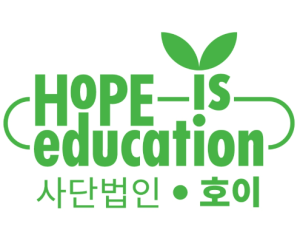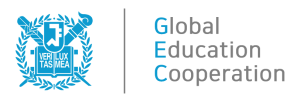Partner Organizations
1) APCEIU (Asia Pacific Center for Education for International Understanding under the Auspices of UNESCO)

This Institute is a regional international organization dedicated to realizing UNESCO’s goal of promoting education for international understanding. It is guided by the “Recommendation concerning Education for International Understanding, Cooperation and Peace and Education relating to Human Rights and Fundamental Freedoms,” adopted by UNESCO’s 18th General Conference in 1974, and by the “Declaration and Integrated Framework of Action on Education for Peace, Human Rights and Democracy,” recommended at the 44th International Conference of Education in 1994 and adopted by the UNESCO General Conference.
In line with UNESCO’s vision of pursuing world peace and human security, the Institute seeks to enhance peace and cultural development through education, strengthen the capacity of UNESCO Member States in this region for international understanding education, and establish a foundation for collaboration among relevant institutions, experts, teachers, educators, and civil society activists. Since its founding in 2000, the Institute has worked continuously with UNESCO Headquarters and 47 Member States in the Asia-Pacific region to advance education for international understanding in support of peace.
Address: 120, Saemal-ro, Guro-gu, Seoul, Republic of Korea, 08289
Tel: 02-774-3956
https://www.unescoapceiu.org/
2) Save the Children

Founded in 1919 in London, England, by Eglantyne Jebb under the principle that not a single child’s rights should be denied, Save the Children now operates in 117 countries—including Korea, Australia, Canada, and Germany—working to protect children’s rights. Save the Children Korea, as the Korean branch of Save the Children International, runs domestic programs focused on child protection, education, and healthcare, while also supporting international efforts in education, health and nutrition, child protection, livelihood assistance, overseas sponsorship, and humanitarian aid.
Address: 174, Tojeong-ro, Mapo-gu, Seoul, 04080
Tel: 02-6900-4400
https://www.sc.or.kr/
3) HoE (Hope is Education)
In addition to its work in Korea, HOI also supports various educational activities abroad—such as global citizenship education, teacher training, and Google-based instruction—in countries like Kenya and Uganda.
Address: G414, Heyground, 115, Wangsimni-ro, Seongdong-gu, Seoul, 04768
Tel: 02-737-1225
4) (사)글로벌발전연구원 ReDI

(사)글로벌발전연구원 ReDI is a research institute established to re-shape international development. ReDI seeks to re-shape, re-think, and re-search. Furthermore, it attempts to re-orient the direction of and re-form international development policies and practices. To achieve these goals, ReDI focuses on international development policy researches and evaluation consulting projects.
In addition, ReDi actively participates in ODA policy improvement, strategy establishment, and business formation and discovery. It strives to form effective partnership with civil society organizations to present useful and relevant findings. ReDI endeavors to realize its belief that international development should be for the promotion of justice, equality and freedom of the villages around the world, and for the pursuit of the happiness of the marginalized groups of people. People at ReDI strongly believe that international development must be transparent, democratic, and responsible.
Address: 17th Floor, 89 Seosomun-ro, Jung-gu, Seoul 04516
Tel: 02-332-9110, 02-323-910
5) E3empower (formerly iBridge)

E3empower is an international development cooperative organization that supports the economic and social independence of the
community through innovative technology and business and education programs centered on Energy, Education, and Entrepreneurship.
E3empower is a collaboration platform that enables governments, international organizations, universities, research institutions,
and civil society in developing and developed countries to collaborate.
E3Empower establishes a solar power plant for local residents in developing countries by establishing a foundation for
education through energy supply using renewable energy in African rural areas where there is no national power grid.
Also, pursuing a community development strategy that encourages self-reliance with entrepreneurship, computer lab construction, STEM/ICT and
entrepreneurship education programs, and social innovation activities for the developing nation through the supply of solar lanterns and water purifiers.
Address: Building 135 Room 308 (Research Institute of Energy and Resources, Seoul National University), 1 Gwanak-ro, Gwanak-gu, Seoul 08826
Tel: 02-871-2125
6) 발전대안 피다

Development Alternatives Pi-da is a specialized advocacy NGO that envisions development in which people can truly flourish. Its purpose is to promote political, economic, social, and cultural development where no member of the global community is discriminated against or marginalized, and where justice and equality can be pursued by all.
Established in 2006 to facilitate civil society’s monitoring of Korea’s expanding ODA (Official Development Assistance), ODA Watch has, over the past decade, taken on the role of Korea’s “ODA watchdog,” raising issues such as aid fragmentation, aid transparency, and so-called “poverty porn,” and contributing to policy changes. It has also played a central role in fostering solidarity within Korea’s civil society for international development cooperation, presenting a model of civic engagement that brings together both young people and professionals.
Address: 115 Wangsimni-ro, Heyground Seoul Forest Branch S403, Seongdong-gu, Seoul (04768)
Tel: 02-518-0705
7) ChildFund Korea

ChildFund Korea works to protect children’s rights in Korea and helping children suffering from poverty and disease for 77 years.
ChildFund Korea was established as part of China Children’s Fund(CCF) in 1948 to help war orphans and has led the welfare of children in Korea over years. ChildFund Korea became independent from former CCF’s support in 1986 and started domestic projects and extend support for children overseas in mid 1990s.
ChildFund Korea focuses on advocacy activities to protect the rights of all children, strengthen welfare programs based on children’s rights under the UN Convention on the Rights of Children, actively respond to social issues, humanitarian aids, and other critical issues for children such as climate change, and strive to ensure children’s rights.
Address: (04522) 20, Mugyo-ro, Jung-gu, Seoul, Republic of Korea
Tel: 1588-1940
8) Good Neighbors
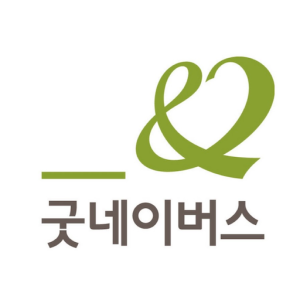
Good Neighbors is a global child-rights-focused NGO established in Korea that actively carries out professional social welfare and international development cooperation projects to create a world free from hunger and where people live in harmony. In 1991, it took its first step to become a “good neighbor” for those in need. Good Neighbors works with neighbors suffering from poverty, disasters, and oppression, without discriminating based on race, religion, ideology, or region. Guided by the UN Convention on the Rights of the Child (CRC) and the principle of putting children first, Good Neighbors is at the forefront of building a world where children afflicted by poverty, disease, and abuse can live happily.
Address: 13 Beodeunaru-ro, Good Neighbors Hall, Yeongdeungpo-gu, Seoul (07253)
Tel: 02-6717-4000
9) UNESCO Korean National Commission
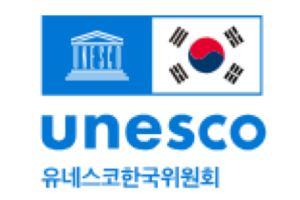
The Korean National Commission for UNESCO, as a national commission, plans to continue contributing so that the Republic of Korea can strengthen its intellectual and moral solidarity and leadership, and fully fulfill its role as a global actor contributing to humanity and the world at large.
Pursuant to Article 7 of the UNESCO Constitution, the Korean National Commission for UNESCO promotes UNESCO activities in the Republic of Korea and fosters collaboration and cooperation among UNESCO, the Korean government, and various specialized institutions and organizations in the fields of education, science, and culture.
The Korean National Commission for UNESCO seeks to enhance international cooperation in education, science, and culture, facilitate information and human resource exchanges, support research and project initiatives in these areas, and carry out other activities to fulfill UNESCO’s objectives.
Address: 26, Myeongdong-gil, Jung-gu, Seoul, Republic of Korea
Tel: 02-6958-4100
10) Institute of APEC Collaborative Education
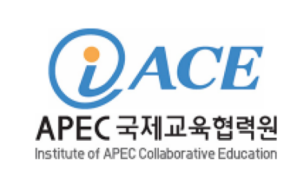
APEC International Education Cooperation Institute (APEC IECI) is a specialized organization for international educational cooperation that takes the lead in educational exchange and development. Established in 2002, its aim is to promote APEC’s shared prosperity and bridge the knowledge and information gap among member economies in the region.
As the organization in charge of APEC education cooperation on behalf of Korea, APEC IECI carries out a wide range of international cooperation activities—such as the APEC Human Network Project, the APEC Future Education Consortium, Education Innovation Community, and education diplomacy (including APEC Chair activities)—to build an educational community within the region.
Address: #310, 80 Cheomdan-ro, Dong-gu, Daegu, Republic of Korea (41062)
Tel: 53-719-2959
11) KOICA ODA 교육원

KOICA ODA Academy is the first specialized educational institution for international development cooperation in Korea, established by the Korea International Cooperation Agency (KOICA) to train professionals in this field. Through its specialized and systematic curricula, the academy imparts both theoretical and practical knowledge of international development cooperation and helps enhance public understanding of aid.
Address: 825 Daewangpangyo-ro, Sujeong-gu, Seongnam-si, Gyeonggi-do (13449)
Tel : 031-740-0766

